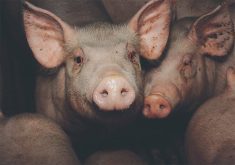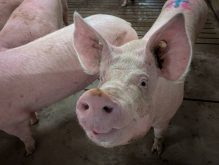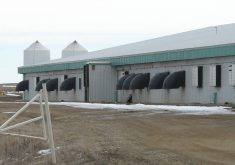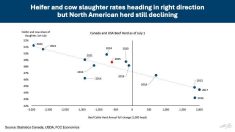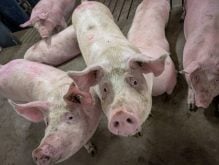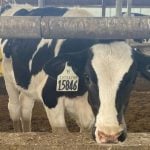A vaccine for porcine epidemic diarrhea virus (PEDv) and antimicrobial alternatives will be among the hog industry research projects supported by recently announced federal cash.
“These projects and the knowledge that we’re aiming to achieve through this research will contribute to the bottom line of pork producers and processors and will also build in Canada’s global leadership in pork production,” said Daniel Ramage, general manager of Swine Innovation Porc.
On Feb. 20, the federal government pledged up to $10.6 million for hog sector research. The funds, to be stewarded by Swine Innovation Porc, will launch the fourth hog research cluster under the federal agri-science program, part of the Sustainable Canadian Agricultural Partnership, a federal news release said.
Read Also
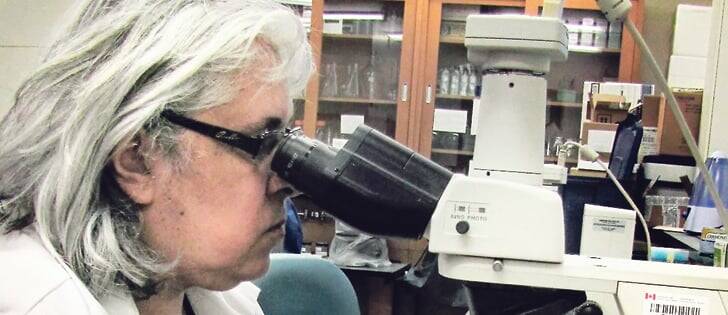
AAFC organic research program cut
Canada’s organic sector says the loss of a federal organic research program at Swift Current, Sask., will set the industry back.
It is the latest in several cluster announcements made by the federal government. Clusters for canola and pulses have also been announced.
Research on the table
SIP, a research and development non-profit directed by the federal and provincial pork councils, also co-ordinated the previous three hog clusters.
The group says it will spend up to $20.1 million in combined government and industry funds over the next five years on the sector’s research priorities. These include climate change and the environment, sector resilience, economic growth and communication and knowledge transfer, a release said.
Planned research includes two vaccine-related projects, said Ramage. One involves testing a new oral delivery method for vaccines. The other is related to a new vaccine for PEDv, which has been a scourge for Manitoba’s pork sector since 2017.
Canadian producers have access to PEDv vaccines, but they haven’t been ideal. One PEDv outbreak brought vaccine from Saskatchewan’s VIDO-InterVac to Manitoba farms, Jenelle Hamblin, Manitoba Pork’s swine health director told the Co-operator last summer. However, it was expensive and had little benefit for animals with no previous exposure to PEDv.
Another U.S.-based vaccine is available, Hamblin said, but import requires special permission from the Canadian Food Inspection Agency.
Researchers will also look at antimicrobial alternatives, specifically tools to improve gut health, Ramage said. This may include amino acids or probiotics.
The industry has been pressured to reduce antibiotic use. Manitoba Pork told its members in 2022 that the sector is unlikely to escape regulation on the issue due to global concern about antibiotic resistant bacteria and their effect on human health.
Under the heading of emissions and environment, projects will look at feed formulations and strategies to reduce phosphorus runoff and nitrogen concentration in manure, SIP said in an explainer document.
Ramage said they’d also look at manure storage and digesters to reduce environmental impact and understand the economics around such practices. Other research will explore genetics, feeding strategies, meat quality and other topics.




